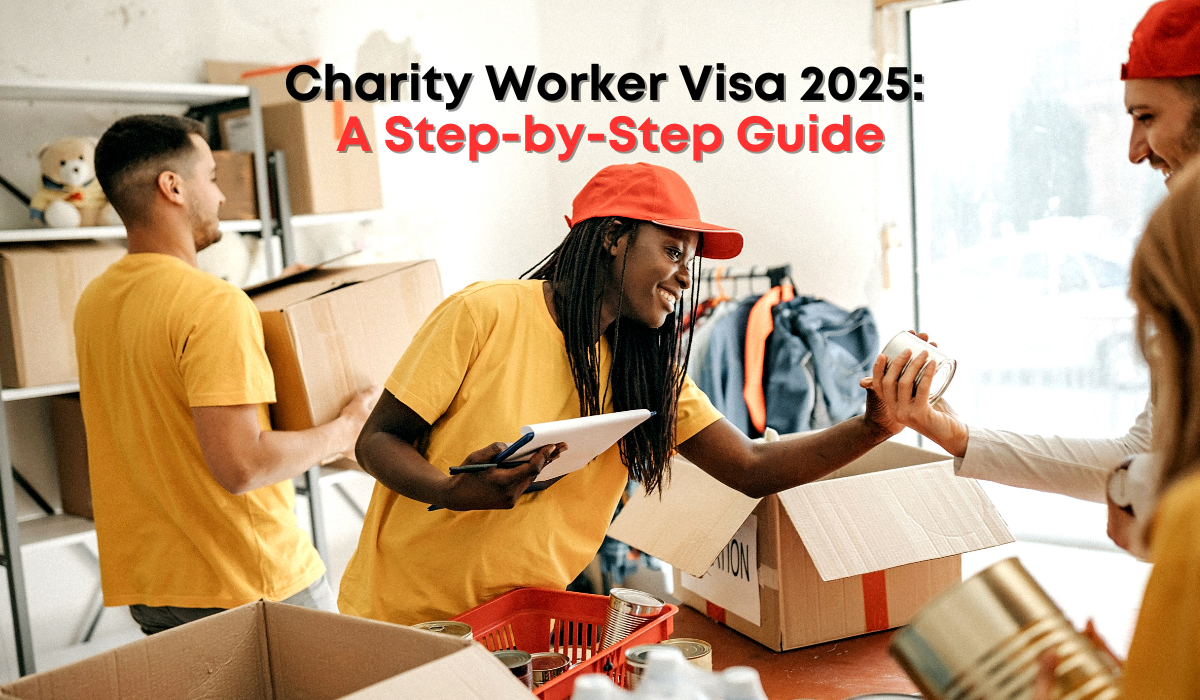The Charity Worker route offers an opportunity for individuals aged 18 and over to engage in voluntary work with recognised charitable organisations in the UK. This visa pathway, though temporary, plays a crucial role in advancing the mission of charitable entities while fostering global collaboration. Here’s a detailed breakdown of how charitable organisations can apply for a sponsor licence under this route.
Understanding the Charity Worker Route
The Charity Worker route is tailored for voluntary roles that directly contribute to the charity’s mission, such as fieldwork. For instance, a charity supporting homeless individuals might sponsor workers to engage directly with them. However, roles like fundraising or back-office administrative tasks, which only indirectly support the charity’s purpose, are not permitted under this route.
This visa route is limited to a maximum of 12 months and does not lead to settlement. To apply, individuals must be sponsored by a UK-based charitable organisation with a valid sponsor licence. It is worth noting that British and Irish citizens, as well as those with indefinite leave to remain or EU Settlement Scheme status, do not require sponsorship.
Key Sources of Guidance
Applying for a Charity Worker sponsor licence requires familiarity with three critical documents:
- Sponsor Guidance
- Part 1: Applying for a licence
- Part 2: Sponsoring a worker
- Part 3: Sponsor duties and compliance
- Appendices A-D
- Immigration Rules Appendix Temporary Worker – Charity Worker
- Outlines specific legal requirements for the visa.
- Guidance for Applicants
- Provides practical advice for individuals applying under this route.
General Principles of Sponsorship
According to the sponsor guidance, sponsorship is a privilege, not a right. Sponsors must:
- Prevent abuse of the immigration system.
- Comply with UK law, including employment regulations and prevention of illegal working.
- Uphold public good standards.
Organisations must demonstrate lawful trading in the UK and take on significant compliance responsibilities, such as record-keeping, monitoring, and reporting to UK Visas and Immigration (UKVI). Non-compliance may result in licence refusal, downgrading, suspension, or revocation.
Unlike other work routes, the Charity Worker route does not require a “genuine vacancy” test. However, sponsors and applicants must demonstrate genuine intent.
Key Personnel for Sponsorship
Sponsors must appoint three key personnel to manage their licence:
- Authorising Officer
- Responsible for ensuring compliance. Must be a paid staff member or office holder, such as a director or trustee.
- Key Contact
- Main liaison with the Home Office. This role can be fulfilled by a legal representative.
- Level 1 User
- Manages the day-to-day operation of the sponsorship system. At least one level 1 user must be an employee, partner, or director who is a settled worker.
Additional Requirements for Charity Worker Licence
To qualify, organisations must be:
- A registered, excepted, or exempt UK charity in line with relevant charity legislation, or
- An ecclesiastical corporation established for charitable purposes.
Supporting documents required for the application are outlined in Appendix A of the sponsor guidance. These documents validate the organisation’s legal status and operational integrity.
Document Checklist for Application
Prospective sponsors must provide at least four pieces of evidence from Appendix A. The key tables include:
- Table 1: For public authorities and listed companies.
- Table 2: For specific types of organisations, including charities.
- Table 3: Visa sponsorship categories.
- Table 4: Alternative documents, such as audited reports or liability insurance.
UKVI may verify the charitable status of organisations listed on registers like the Charity Commission for England and Wales or the Scottish Charity Regulator. Additional evidence may be required if discrepancies exist.
Application Process for Sponsor Licence
The licence application involves several steps:
- New Licence Application
- Complete the online application, saving each page to avoid data loss.
- Submit the application and pay the fee (£536 for Temporary Worker sponsor licence).
- If priority service is available, pay an additional £500 to expedite processing.
- Download and complete the submission sheet and send it with supporting documents to UKVI within five working days.
UKVI aims to process applications within eight weeks. Priority applications are processed within 10 working days of receiving all documents.
- Adding a Category to an Existing Licence
- Level 1 users can log into the sponsor licence application account to complete a shorter form for adding the Charity Worker tier.
- Additional documents may not be necessary if the organisation’s charitable status has already been verified.
Sponsoring a Charity Worker
Once an organisation secures its sponsor licence, it can sponsor workers under this route. The process is managed through the Sponsorship Management System (SMS), an online portal that facilitates compliance and reporting.
Future Developments in Sponsorship
UKVI is gradually rolling out a modernised sponsorship system, starting with the Government Authorised Exchange route. Although the Charity Worker route remains under the current system, future updates may streamline the process further.
Final Reflections
Applying for a Charity Worker sponsor licence is a structured yet nuanced process. Charities must ensure compliance with all requirements to avoid setbacks. For those seeking assistance, engaging legal experts can simplify the process and ensure adherence to UKVI’s stringent standards. As immigration policies evolve, staying informed and proactive will be key for organisations seeking to bring invaluable voluntary workers to the UK.
Get in touch: For a comprehensive understanding of your options or queries on UK immigration matters, contact GigaLegal Solicitors at 02074067654 or click here to book a no-obligation consultation with an immigration expert.


